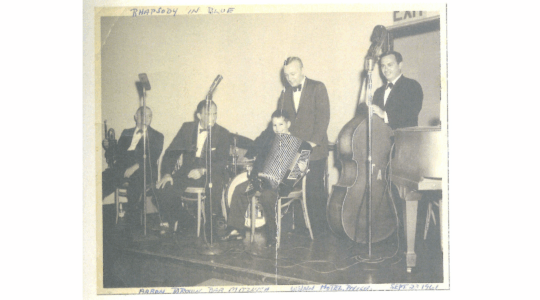WASHINGTON (JTA) — U.S. Jewish leaders are praising the move to drop criminal charges against two former AIPAC officials, but say serious questions must be answered about why Steve Rosen and Keith Weissman were targeted for investigation in the first place.
“I’m relieved and happy” for Rosen and Weissman and “happy for the community,” said Malcolm Hoenlein, executive vice chairman of the Conference of President of Major American Jewish Organizations, but “I think there are a lot of questions that need to be addressed.”
Hoenlein questioned “the justification” for the case and the decision to bring charges under a law that had barely been used in more than 90 years.
“You don’t want to reopen the whole case, but you have to look at the damage that was done,” Hoenlein said.
Rabbi David Saperstein, director of the Religious Action Center of Reform Judaism, said “I think there are bona fide questions that need to be asked here.”
In addition to raising questions about the substance of the charges, Jewish communal leaders also criticized the waves of government leaks in the case that they say were aimed at discreding the defendants and other pro-Israel figures.
Hoenlein pointed to last week’s revelation of the wiretap of U.S. Rep. Jane Harman (D-Calif.) as part of the government’s investigation, saying it was just another example of the unfair “besmirching” of those who were involved.
Saperstein said information that has been revealed in the pre-trial process has “raised grave concerns that a serious injustice and abuse of power was involved in this case.”
Rabbi Shmuel Herzfeld, vice president of AMCHA-The Coalition for Jewish Concerns, says his organization will file a Freedom of Information Act on Monday in an effort to “get some answers” to questions such as “who approved the investigation.”
“We are very, very happy this has been dismissed,” said Herzfeld, but “for us this is not over, this is the beginning.”
“The government should not be able to get away with this,” he said.
AMCHA was the only Jewish group that filed an amicus, or friend of the court, brief in the case. The 2007 submission, in response to a government request that the trial be closed to the public, argued that it was in the interest of the U.S. Jewish community for the trial to be open and compared the case to the Dreyfus affair.
Herzfeld called the failure of many in the Jewish community to speak out on Rosen and Weissman’s behalf until recently “disappointing,” but said the focus should now be on the government.
Saperstein raised questions about the government’s prosecution in media interviews, but his organization did not put out a formal statement on the case. He said it is difficult for organizations to publicly take a position on a case like this one, particularly when the charges were initially brought, because they don’t know all the facts and thus are naturally going to be cautious.
In recent months, as more about the case became known, organizations became more willing to publicly criticize the prosecution. Both the Anti-Defamation League, last fall, and the American Jewish Committee, in March, urged the Justice Department in letters to review the prosecution of the case. Both organizations applauded the news of its pending dismissal.
The ADL in a statement said the case “should never have been brought.” The group said it “endangered core First Amendment protections not just for AIPAC, but for the media and anyone, who in the course of their work, discusses with government officials something that a prosecutor later decides was protected national defense information.”
The AJC’s executive director, David Harris, said the “Department of Justice has now reaffirmed that the law of the United States protects citizens who engage in the everyday and essential work of political advocacy.”
Hoenlein lamented that even though the case has been dropped, the government “can’t give back” Rosen and Weissman the four years of their lives they lost or “repair the damage” their reputations suffered.
Saperstein hoped, though, that the two men could return to their careers of serving the Jewish community.
“Both of them made significant contributions to the security and well-being of Israel,”said Saperstein, who added that while he sometimes had “respectful differences” with Rosen over policy, “I always had real respect for him.”
Both Rosen and Weissman, he said, “certainly have expertise that will benefit Jewish organizations.”
In recent months Rosen has been writing for the Middle East Forum think tank, playing a lead role in sinking the effort to install Charles “Chas” Freeman, a former ambassador to Saudi Arabia who has been critical of Israell and supportive of the kingdom, in a top U.S. intelligence post.
Rosen has filed a multimillion-dollar lawsuit against AIPAC, claiming the organization defamed him by accusing him of violating the organization’s rule. AIPAC has denied the allegations.
JTA has documented Jewish history in real-time for over a century. Keep our journalism strong by joining us in supporting independent, award-winning reporting.





